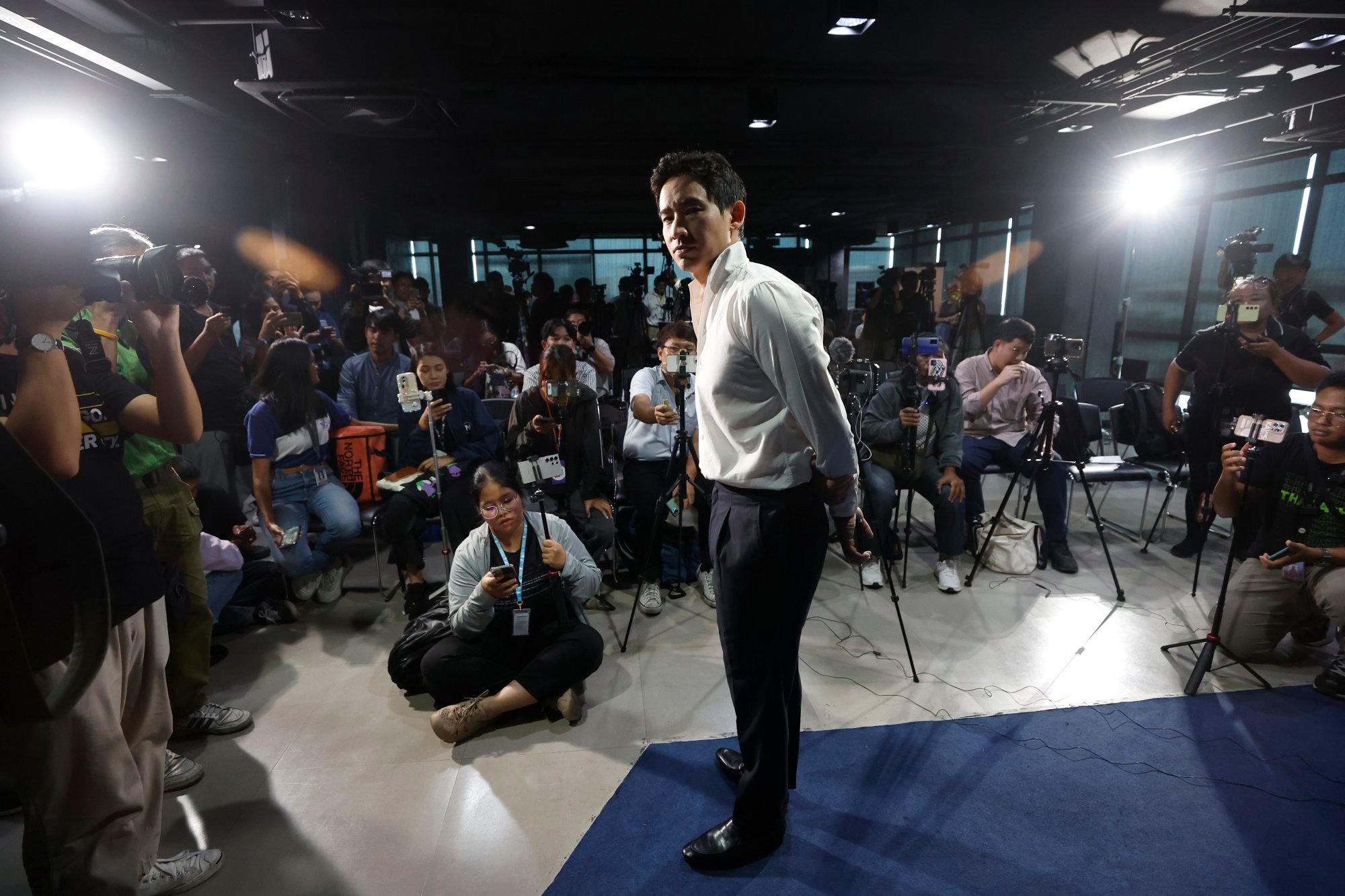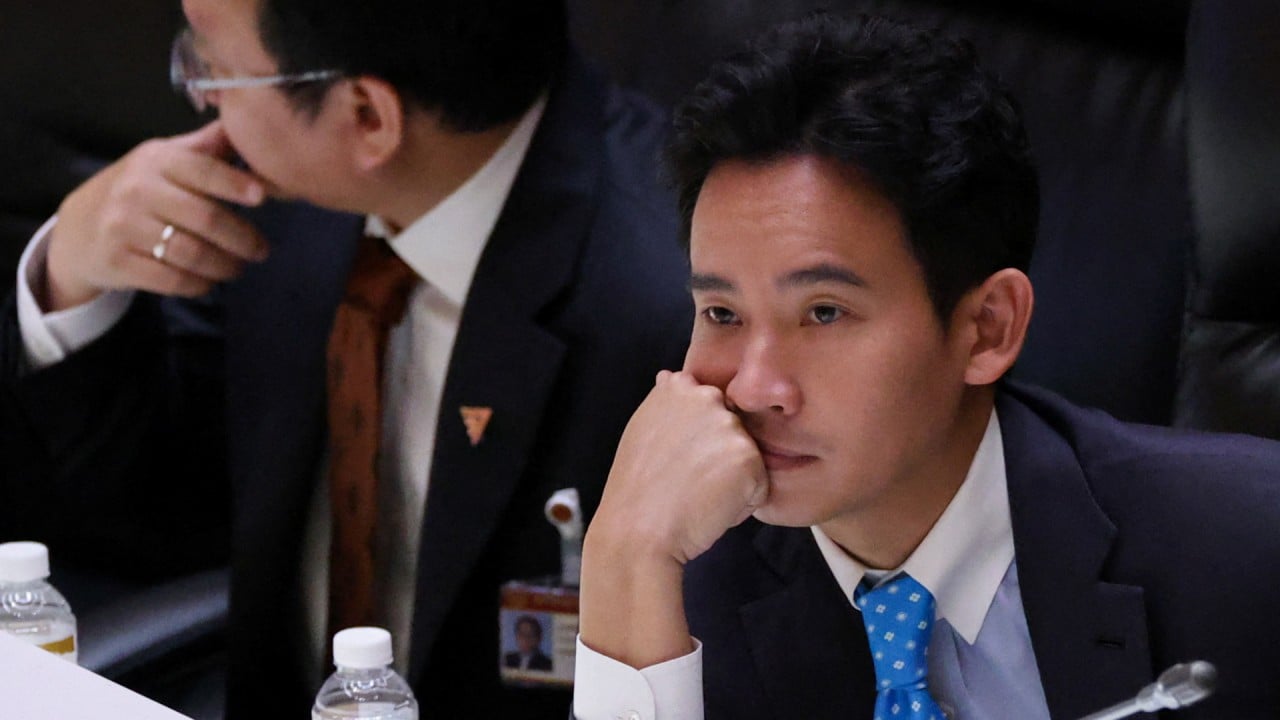The poll agency did not follow procedures before filing for the dissolution, said Pita Limjaroenrat, whose bid to become prime minister was thwarted by the pro-royalist establishment parties and members of the military-appointed Senate.
Under the rules, the party should have been given an opportunity to present its arguments, Pita said at a press conference in Bangkok on Sunday. The briefing was held even after the court last week requested the party and the poll agency to refrain from making public comments until it reached a ruling.

The election commission sought to disband Move Forward after the constitutional court in January ruled the group’s campaign to loosen the lese majeste law, also known as Article 112 of the Thai penal code, amounted to an attempt to overthrow the constitutional monarchy. The party’s executive leaders face a 10-year ban from political activities or political office.
The charter court’s ruling on the party’s campaign on royal defamation law “is not automatically binding” in the dissolution case, Pita said, adding disbanding a political party should be the last resort and “there should be proof beyond reasonable doubt of the wrongdoing”.
A dissolution of Move Forward “would mean an attack on democracy”, leaving it without check and balance, Pita said.
“But we are not at that stage yet, we are still fighting tooth and nail to make sure that ‘if’ never happens,” he said in response to a question on what it would mean if the party lost the case.
Move Forward has about 150 lawmakers in the 500-member elected House of Representatives. If the party is dissolved, its members will need to join a new party within 30 days to keep their seats in the house. While Move Forward has said it had prepared a new successor group in the event of dissolution, it has not divulged any details.
In 2020, the charter court dissolved Move Forward’s predecessor, Future Forward Party, for breaching election rules on finances. The ruling sparked an unprecedented youth-led protest movement later that year that called for the resignation of the military-backed prime minister at the time and monarchy reforms. Future Forward’s key leaders were also barred from politics for a decade.


